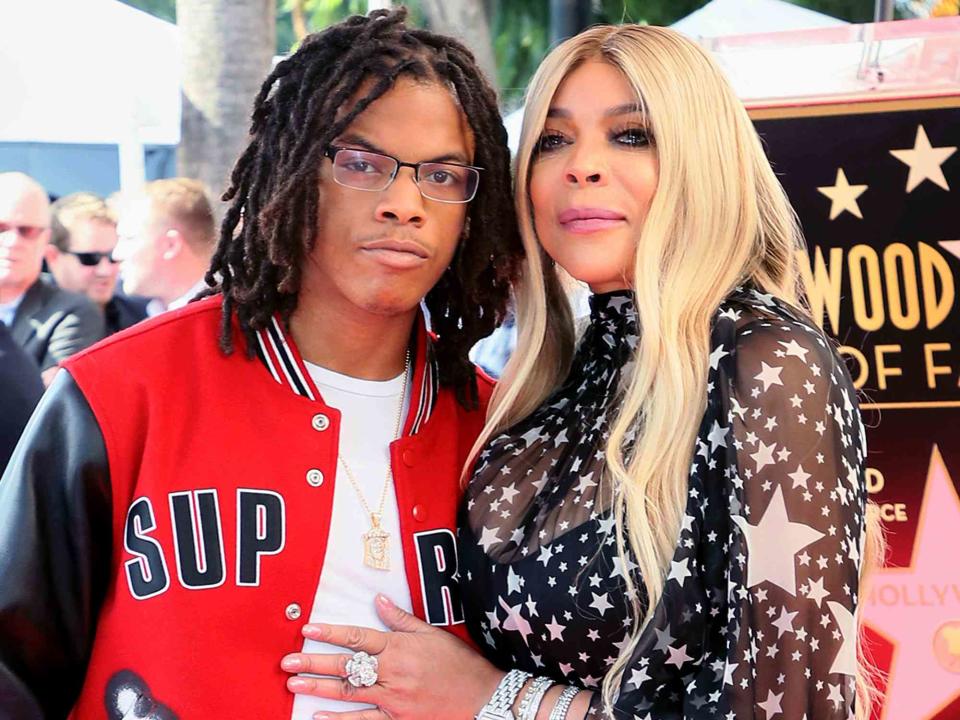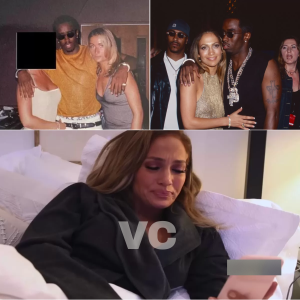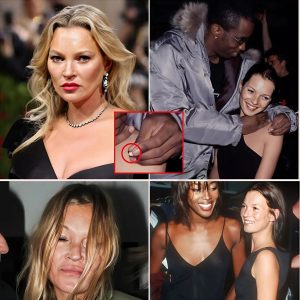Wendy Williams vs. Diddy: A Decades-Long Feud Exposed

In a shocking revelation, Wendy Williams, the outspoken media personality, has reignited her allegations against music mogul Diddy. The controversy dates back to Wendy’s days as a radio host, where she frequently called out Diddy for alleged manipulation, exploitation, and unchecked power in the music industry. These claims have resurfaced amidst new accusations against Diddy involving substance abuse, inappropriate behavior with minors, and a toxic culture of control.
Wendy’s Alarming Claims
Wendy accuses Diddy of targeting her son, Kevin Jr., when he was just 16 years old. She asserts that Diddy sought to manipulate Kevin as part of a larger vendetta against her for publicly questioning his practices. These latest allegations seem to validate Wendy’s long-standing warnings about the darker side of Hollywood—a world where unchecked power often leads to exploitation.
Wendy has always been unafraid to confront what she sees as systemic problems within the entertainment industry. She points to a culture of silence and complicity that enables figures like Diddy to operate without accountability. According to Wendy, these recent accusations are not isolated incidents but rather the culmination of years of unchecked power and suppressed allegations finally coming to light.

A History of Tension
The feud between Wendy and Diddy is decades old. On her radio show, The Wendy Williams Experience, she frequently hinted at misconduct by Diddy. She spoke of a persona that thrived on control and intimidation, often referencing incidents involving artists signed to Bad Boy Records.
One striking example involves the girl group Total, who reportedly attempted to ambush Wendy outside her workplace, allegedly on Diddy’s orders. Wendy had previously criticized the group’s financial struggles and speculated on Diddy’s role in their career woes. She characterized this as part of a broader culture of retaliation that Diddy used to maintain his public image.
Her interviews with industry insiders added fuel to the fire. Mark Curry, a former Bad Boy artist, described Diddy in his book, Dancing with the Devil: How Puff Burned the Bad Boys of Hip-Hop, as someone surrounded by a “shadow of darkness.” Wendy also interviewed Karen “Superhead” Steffans, who recounted troubling behavior at Diddy’s infamous parties, where boundaries were often blurred.
A Broader Cultural Reckoning
Wendy’s criticism of Diddy isn’t limited to personal grievances. She sees his alleged actions as emblematic of a broader culture of power and control in the music industry. Wendy describes an environment where influence and wealth enable some to manipulate and silence others without fear of repercussions.
These dynamics, Wendy argues, create a toxic cycle where victims are marginalized, and abusers are protected. The fact that Wendy’s earlier warnings now align with recent allegations underscores her prescience and persistence.
The Fallout
As legal investigations into Diddy intensify, the implications for him—and the industry—could be profound. Each new accusation adds weight to the claims against him, and experts suggest that these could result in a landmark case.
For Wendy, the situation feels like vindication. Her decades-long crusade against the darker aspects of Hollywood and the music industry might finally be gaining traction. She has consistently highlighted issues of exploitation, control, and retaliation, often at great personal and professional cost.
What’s Next?
The allegations against Diddy raise critical questions about the accountability of powerful figures in the entertainment world. Will more victims come forward? How will the music industry address these systemic issues?
Wendy’s role in bringing these matters to light cannot be overstated. Her willingness to confront uncomfortable truths could inspire others to break their silence, potentially leading to a seismic shift in how the industry handles misconduct.
As these investigations unfold, one thing is clear: Wendy Williams’ warnings were not mere gossip but a prescient call for accountability in an industry long plagued by unchecked power.






